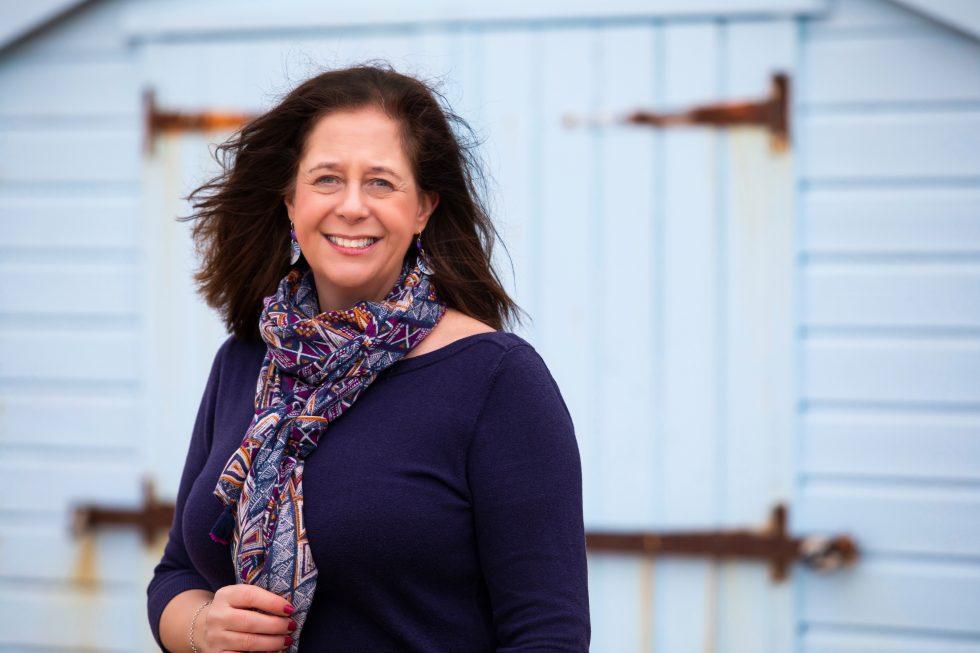Lockdown start-up – 5 lockdown business success stories
Being in lockdown doesn't mean your business needs to be down and out. Read about five new businesses and how they adapted to Covid-19 restrictions.
Covid-19 has transformed the UK's economic landscape, with the closure of big-name high street stores and businesses falling into administration. But some start-ups have thrived thanks to flexible approaches, quick thinking and a dash of luck. Start Up Loans spoke to five businesses to find out how they're emerging stronger than ever.
The coronavirus pandemic hasn't spelled doom and gloom for every business. Many sectors - such as food and drink, courier and logistics, and e-commerce businesses (particularly those offering gifts) - have performed strongly in recent months. Size of business has been less important in surviving the pandemic crisis - while more established companies may have been slow to adapt, some start-ups have proved far more nimble.
Many start-ups that quickly changed their business model in the face of national lockdowns and a fall in face-to-face customer sales have held off the threat of closure. Some have even thrived. From a gin-making enterprise in Cambridgeshire that expanded to making hand sanitisers to a restaurant delivering at-home afternoon teas, here are five businesses that have successfully navigated the choppy waters of the pandemic.
Roundwood Gin
Founders: Emily Robertson and Rupert Waters
Location: Cambridgeshire
Founded: 2018
Website: roundwooddistillery.co.uk
“It's definitely made for an interesting year,” says Emily Robertson, co-founder of Huntington-based distillery Roundwood Gin, reflecting on the impact of Covid-19 on her gin-making start-up. “It's not what we planned, but for me, it's been a real change of mindset.”
The pandemic forced Emily to quickly adapt to new markets and launch new products, shifting sales from trade to the public.
“We sell to supermarkets, independent stockists, farm shops, delis, wine merchants and smaller retailers. Although many of those have remained open, it's been difficult to gain new stockists. Everyone is hesitant to take on new products and take risks. In terms of gaining new stock, it's been a challenging year.
“In the first lockdown, there was a lot of at-home drinking,” explains Emily, which saw gin sales soar. “We sold a lot through our website, which we were hugely fortunate was already up and running. There's also been a lot of support for smaller, independent local businesses as well - a real drive by consumers to buy local, which benefited us as well.”
Emily also spotted an opportunity to support her local community by using the distillery to create hand sanitiser, which she donated to local GPs, prisons and medical centres. The donations were funded through small bottles of hand sanitiser sold online.
“We watched the news about distilleries making hand sanitiser, and overnight the number of inquiries we had just took off. It became clear that people you thought would have had access to it - GP surgeries, prisons, councils - couldn't get their hands on hand sanitiser. Because the base product is ethanol, we started making hand sanitiser.
“It is quite regulated, and we had to use a very specific recipe,” she explains. “The greatest difficulty was getting hold of the small plastic bottles. But we were able to sell little bottles of sanitiser on our web site, which covered the cost of us supplying big containers of hand sanitiser to different services in our community for free. It was nice to be able to do that.”
Big Hair + Beauty
“Last year was our best year,” says Melissa Sinclair, founder of Big Hair + Beauty, a brand that is redefining Afro and curly hair care with naturally formulated products. “We grew last year as a result of the pandemic because salons closed. Customers had to do their hair at home, which had a positive impact on us.”
Covid-19 meant that Melissa had to quickly adapt her business while struggling to overcome shortages in her supply chain and growing demand.
“We did so well that we had stock issues for most of 2020,” says Melissa. “When we did have stock, it was great, but we were selling out so quickly. We had to tackle shortages of containers and everything else, which had a huge impact. We couldn't get our packaging or any suitable packaging for almost four months.”
While grappling with shortages caused by the pandemic, Melissa says it was vital to keep customers engaged. She encouraged them to pre-order products, to ensure her business had a positive cash flow.
“We stepped up our customer retention and started adding value through our mailing list. We introduced pre-orders, which changed everything for us because we had all of these people in our pipeline. That meant that before the manufacturing order was even complete, we had already raised all of the money that we needed.”
The British Craft House
Since founding The British Craft House, the business has helped over 450 independent crafters sell their crafts online. The business has boomed during the pandemic as non-essential high street shops were shuttered and the surge in online shopping saw revenue triple during 2020.
“We launched in November 2019, and due to the pandemic, our business growth is where I thought we'd be in year three or four,” Susan says. “For example, we've got an app launching, and that was never on the radar for this year. We've been really lucky, and you couldn't have predicted it. It's a strange kind of year, and strangely it's been good for us.”
The growth has been the result of planning, spotting and solving potential issues before they become problems.
“One of the things that we did when we went into lockdown was to think about deliveries,” she says. “My biggest potential issue would have been if the Post Office had said they would only deliver essential items.
“I had lots of crafters who said, 'I don't want to go to the Post Office because of Covid'. So I launched a section on the website for letterbox gifts - the idea being that they could post it into the post box, and at the other end, it would be posted through the customer's letterbox. A lot of them now print their postage off at home and on their daily exercise walk post their products to customers.”

The Pudding Pantry
The hospitality industry has borne the brunt of the Covid-19 pandemic, with businesses forced to close as the UK was plunged into lockdown and customers prevented from eating out. The pandemic could have been a recipe for disaster for The Pudding Pantry, a dessert-inspired brunch restaurant in the heart of Nottingham. However, founder Anthony Quinn rapidly pivoted the business to launch a takeaway and delivery service, including an innovative at-home afternoon tea experience.
“It's been a bit of a rollercoaster,” says Anthony. “At the start of the pandemic, I was confident that as the hospitality industry employs millions of people, in some way we'd be looked after. But Covid has been decimating the high street.
“We created products like afternoon tea boxes, and we've done make-at-home pancake kits, which have been great for families. For example, we had 300 people booked in for Valentine's afternoon teas which we delivered - over twice as many as the covers we have across both our sites. Normally, we'd have done maybe 150 covers. We probably wouldn't have thought about these before. It's been good for business.”
D&K Accounting
Covid-19 has forced small businesses to review their finances, examine costs and develop new ways to make money. That's been a positive outcome for D&K Accounting, which specialises in providing accounting support for around 150 small businesses.
“Apart from home working and the logistics that come with that, we've had some of our best couple of quarters during the pandemic,” reveals founder Daniel Edwards. “We made a decision fairly early on to do as much as possible to help small businesses. Our income stream is fairly steady through monthly direct debits, so we don't get the peaks and troughs in our business model.”
A predictable income meant Daniel was free to focus on customers, adding value through advice, social media and video.
“We have a WhatsApp group to support people, we made Facebook posts and videos. We managed to get quite a few new customers from it. The Chancellor Rishi Sunak would give an update on a Friday evening, so we tried to explain what he was saying, putting it in a way that people could understand what they could claim for.
“We helped businesses go through their expenses and minimise their costs as much as possible. We downgraded our office because we didn't need it anymore. We ran an expense review in-house, so getting other people to do the same with their expenses was fairly easy. It was about helping small businesses spend less in the short term.”
Learn with Start Up Loans and help get your business off the ground
Thinking of starting a business? Check out our free online courses in partnership with the Open University on being an entrepreneur.
Our free Learn with Start Up Loans courses include:
- Entrepreneurship – from ideas to reality
- First steps in innovation and entrepreneurship
- Entrepreneurial impressions – reflection
Plus free courses on climate and sustainability, teamwork, entrepreneurship, mental health and wellbeing.
Tags relating to this content
Disclaimer: The Start -Up Loans Company makes reasonable efforts to keep the content of this article up to date, but we do not guarantee or warrant (implied or otherwise) that it is current, accurate or complete. This article is intended for general information purposes only and does not constitute advice of any kind, including legal, financial, tax or other professional advice. You should always seek professional or specialist advice or support before doing anything on the basis of the content of this article.
The Start-Up Loans Company is not liable for any loss or damage (foreseeable or not) that may come from relying on this article, whether as a result of our negligence, breach of contract or otherwise. “Loss” includes (but is not limited to) any direct, indirect or consequential loss, loss of income, revenue, benefits, profits, opportunity, anticipated savings, or data. We do not exclude liability for any liability which cannot be excluded or limited under English law. Reference to any person, organisation, business, or event does not constitute an endorsement or recommendation from The Start-Up Loans Company, its parent company British Business Bank plc, or the UK Government.
Your previously read articles
Sign up for our newsletter
Just add your details to receive updates and news from Start Up Loans
Sign up to our newsletter

